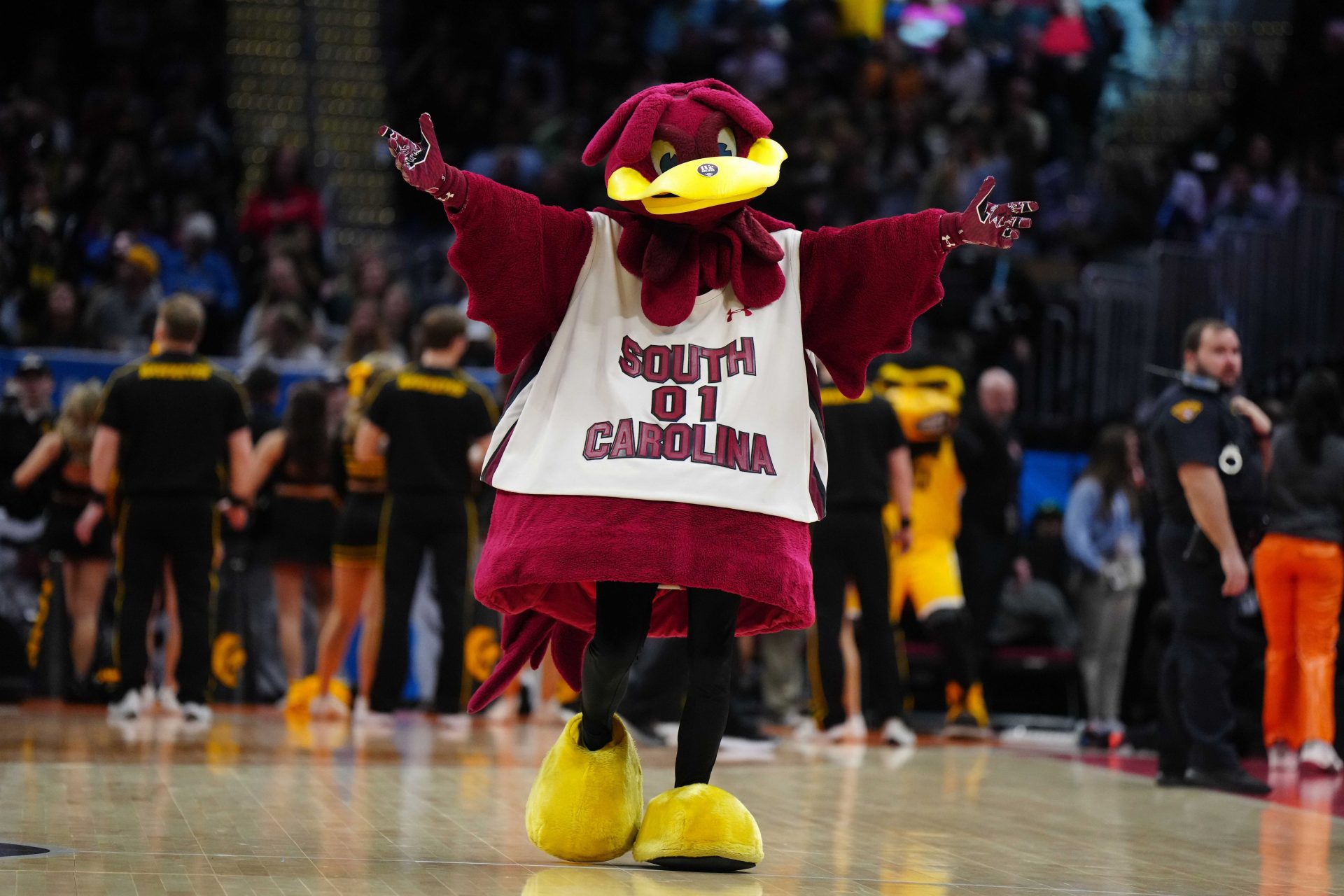One of the things that makes college football great is the variety of traditions that makes each team unique. South Carolina has one of the most unique mascots in college football, even with over 134 teams in the FBS.
A mascot that pays homage to the state’s historical roots, the Gamecock is synonymous with South Carolina. How did the South Carolina Gamecocks mascot come to be?

What is the South Carolina Gamecocks Mascot?
The University of South Carolina is one of the oldest universities in the country. Founded in 1801, South Carolina claims to be the oldest continuously operating university in the south since the school did not close during the Civil War.
The University didn’t officially adopt the Gamecock moniker until the early 1900s, though.
The State newspaper in Columbia is credited with first calling the football team “The Gamecocks” in 1900 after people began colloquially calling the sports teams “The Fighting Gamecocks” in the late 1800s.
In 1902, the team officially adopted the name “The Gamecocks” following a 12-6 win against rival Clemson.
Beginning at homecoming in 1980, the university debuted “Cocky,” a costumed Gamecock, as the official mascot at sporting events and university events.
In 1999, “Sir Big Spur” debuted as a live Gamecock mascot at baseball games at the old Sarge Fry Stadium. It would be seven years before Sir Big Spur began to appear at football games, but the mascot is now a mainstay at Williams-Brice Stadium.
Why is South Carolina the Gamecocks?
That nickname has deep roots in the state. During the Revolutionary War, General Thomas Sumter was a key leader of the South Carolina militia and one of the best strategists of the era. He was nicknamed “The Fighting Gamecock” due to his aggressive military tactics … and his love of cockfighting.
Sumter’s name is all over the state of South Carolina. A prominent town in the Midlands is named after the famed military leader, and the primary street going through the University of South Carolina in Columbia is Sumter Street.
Cockfighting was popular in the early 1900s, so no one had issues with naming the state’s flagship university after the aggressive animal. The mascot is mostly unique to South Carolina — though Jacksonville State also uses the name — and represents the state’s long and storied history.
College Football Network has you covered with the latest news and analysis, rankings, transfer portal information, top 10 returning players, the 2024 college football season schedule, and much more!

